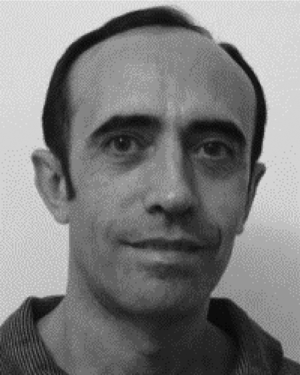Abstract:
Augmented reality (AR) for learning is a relevant topic that has recently received considerable attention. However, the current literature lacks a survey of AR-based educ...Show MoreMetadata
Abstract:
Augmented reality (AR) for learning is a relevant topic that has recently received considerable attention. However, the current literature lacks a survey of AR-based educational approaches and experiences in the specific field of engineering studies. Five research questions were addressed: RQ1) engineering studies where AR is used; RQ2) types of educational activities where AR is used; RQ3) evaluation of its impact on students and instructors; RQ4) relevant characteristics of AR apps; and RQ5) their degree of interactivity. Regarding RQ1, it is concluded that AR has been mainly used in technical drawing, electronics, and construction. Concerning RQ2, AR apps have assisted in lectures, exercise classes, and laboratories. However, the preferred educational activity varies for each discipline. Regarding RQ3, it has been found that AR apps have been evaluated with respect to students’ or instructors’ perceptions and students’ academic performance. In general, the perceptions are positive, but students criticize some technical elements. Moreover, academic performance is increased in most studies. Finally, regarding RQ4 and RQ5, AR apps do not achieve the highest levels of functional characteristics and have low degrees of interactivity. The systematic review indicates that there is plenty of room for the future use of AR in engineering studies, but each engineering area must identify adequate educational purposes. It is also recommended to assess apps through objective measures, more structured constructs, and validated scales. Finally, higher functional characteristics and interactivity should be encouraged to exploit the full potential of AR.
Published in: IEEE Transactions on Learning Technologies ( Volume: 14, Issue: 6, 01 December 2021)
Funding Agency:

Universidad de La Serena, La Serena, Chile
Alejandro Álvarez-Marín (Member, IEEE) received the bachelor's degree in industrial engineering from the Universidad de La Serena, La Serena, Chile, in 2003, and and the master's degree in information technology from Universidad Santa María, Valparaíso, Chile, in 2008. He is currently working toward the Ph.D. degree in information technology and communications with Universidad Rey Juan Carlos, Madrid, Spain.
He is currentl...Show More
Alejandro Álvarez-Marín (Member, IEEE) received the bachelor's degree in industrial engineering from the Universidad de La Serena, La Serena, Chile, in 2003, and and the master's degree in information technology from Universidad Santa María, Valparaíso, Chile, in 2008. He is currently working toward the Ph.D. degree in information technology and communications with Universidad Rey Juan Carlos, Madrid, Spain.
He is currentl...View more

Universidad Rey Juan Carlos, Madrid, Spain
J. Ángel Velázquez-Iturbide (Senior Member, IEEE) received the degree in computer science and the Ph.D. degree in computer science from the Universidad Politécnica de Madrid, Madrid, Spain, in 1985 and 1990, respectively.
He is currently a Professor with the Universidad Rey Juan Carlos, Madrid, where he is the leader of the Laboratory of Information Technologies in Education (LITE). His research interests include programmi...Show More
J. Ángel Velázquez-Iturbide (Senior Member, IEEE) received the degree in computer science and the Ph.D. degree in computer science from the Universidad Politécnica de Madrid, Madrid, Spain, in 1985 and 1990, respectively.
He is currently a Professor with the Universidad Rey Juan Carlos, Madrid, where he is the leader of the Laboratory of Information Technologies in Education (LITE). His research interests include programmi...View more

Universidad de La Serena, La Serena, Chile
Alejandro Álvarez-Marín (Member, IEEE) received the bachelor's degree in industrial engineering from the Universidad de La Serena, La Serena, Chile, in 2003, and and the master's degree in information technology from Universidad Santa María, Valparaíso, Chile, in 2008. He is currently working toward the Ph.D. degree in information technology and communications with Universidad Rey Juan Carlos, Madrid, Spain.
He is currently working as a Professor with the Universidad de La Serena. His research interests include information technology, innovation, and education.
Prof. Álvarez-Marín is a Member of the IEEE Computer and Education Societies.
Alejandro Álvarez-Marín (Member, IEEE) received the bachelor's degree in industrial engineering from the Universidad de La Serena, La Serena, Chile, in 2003, and and the master's degree in information technology from Universidad Santa María, Valparaíso, Chile, in 2008. He is currently working toward the Ph.D. degree in information technology and communications with Universidad Rey Juan Carlos, Madrid, Spain.
He is currently working as a Professor with the Universidad de La Serena. His research interests include information technology, innovation, and education.
Prof. Álvarez-Marín is a Member of the IEEE Computer and Education Societies.View more

Universidad Rey Juan Carlos, Madrid, Spain
J. Ángel Velázquez-Iturbide (Senior Member, IEEE) received the degree in computer science and the Ph.D. degree in computer science from the Universidad Politécnica de Madrid, Madrid, Spain, in 1985 and 1990, respectively.
He is currently a Professor with the Universidad Rey Juan Carlos, Madrid, where he is the leader of the Laboratory of Information Technologies in Education (LITE). His research interests include programming and algorithm education, educational programming tools, and software visualization.
Prof. Velázquez is a Senior Member of the IEEE Computer and Education Societies, and a Senior Member of the ACM. He is also the Vice-President of the Spanish Association for the Advancement of Computers in Education (ADIE).
J. Ángel Velázquez-Iturbide (Senior Member, IEEE) received the degree in computer science and the Ph.D. degree in computer science from the Universidad Politécnica de Madrid, Madrid, Spain, in 1985 and 1990, respectively.
He is currently a Professor with the Universidad Rey Juan Carlos, Madrid, where he is the leader of the Laboratory of Information Technologies in Education (LITE). His research interests include programming and algorithm education, educational programming tools, and software visualization.
Prof. Velázquez is a Senior Member of the IEEE Computer and Education Societies, and a Senior Member of the ACM. He is also the Vice-President of the Spanish Association for the Advancement of Computers in Education (ADIE).View more


